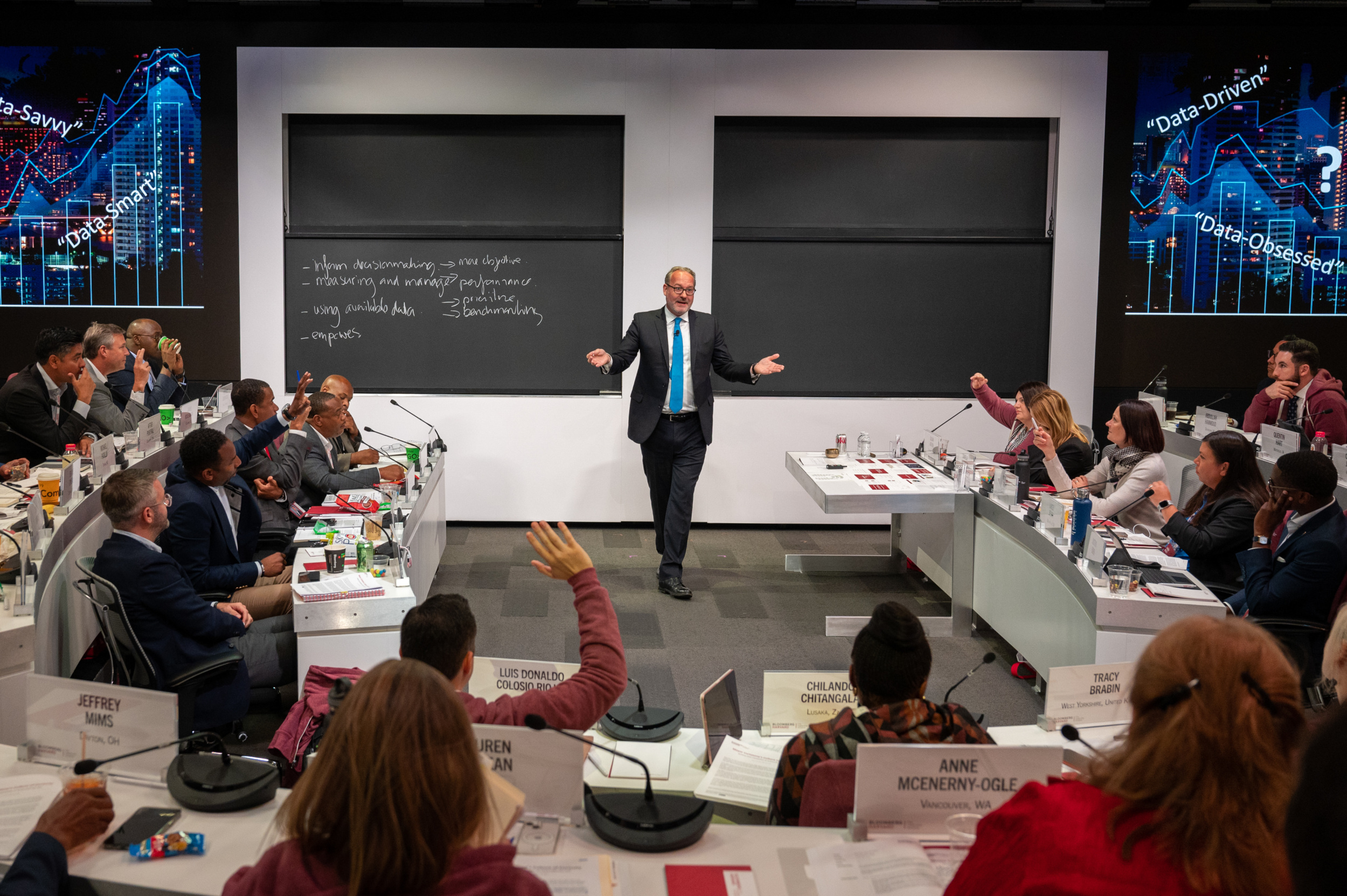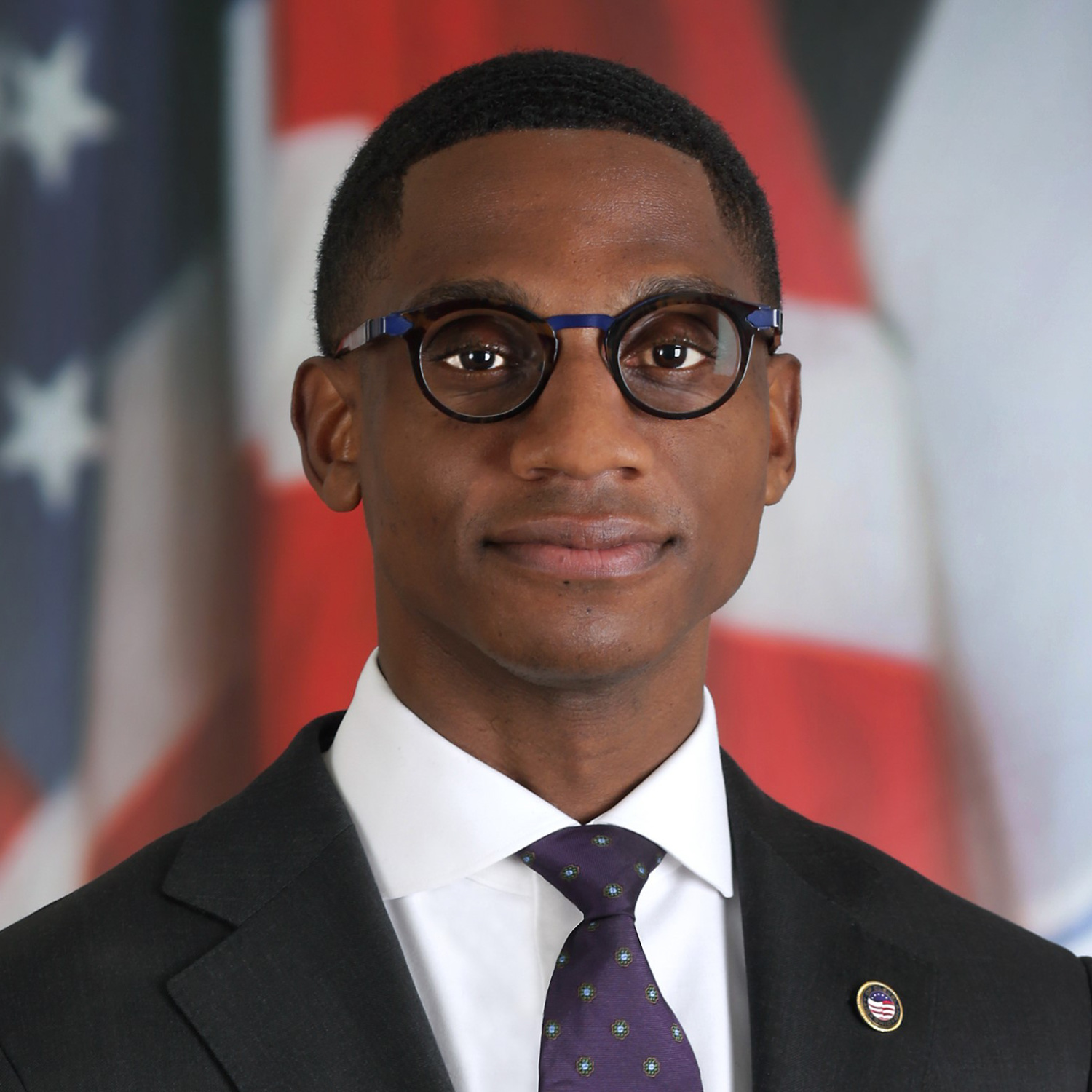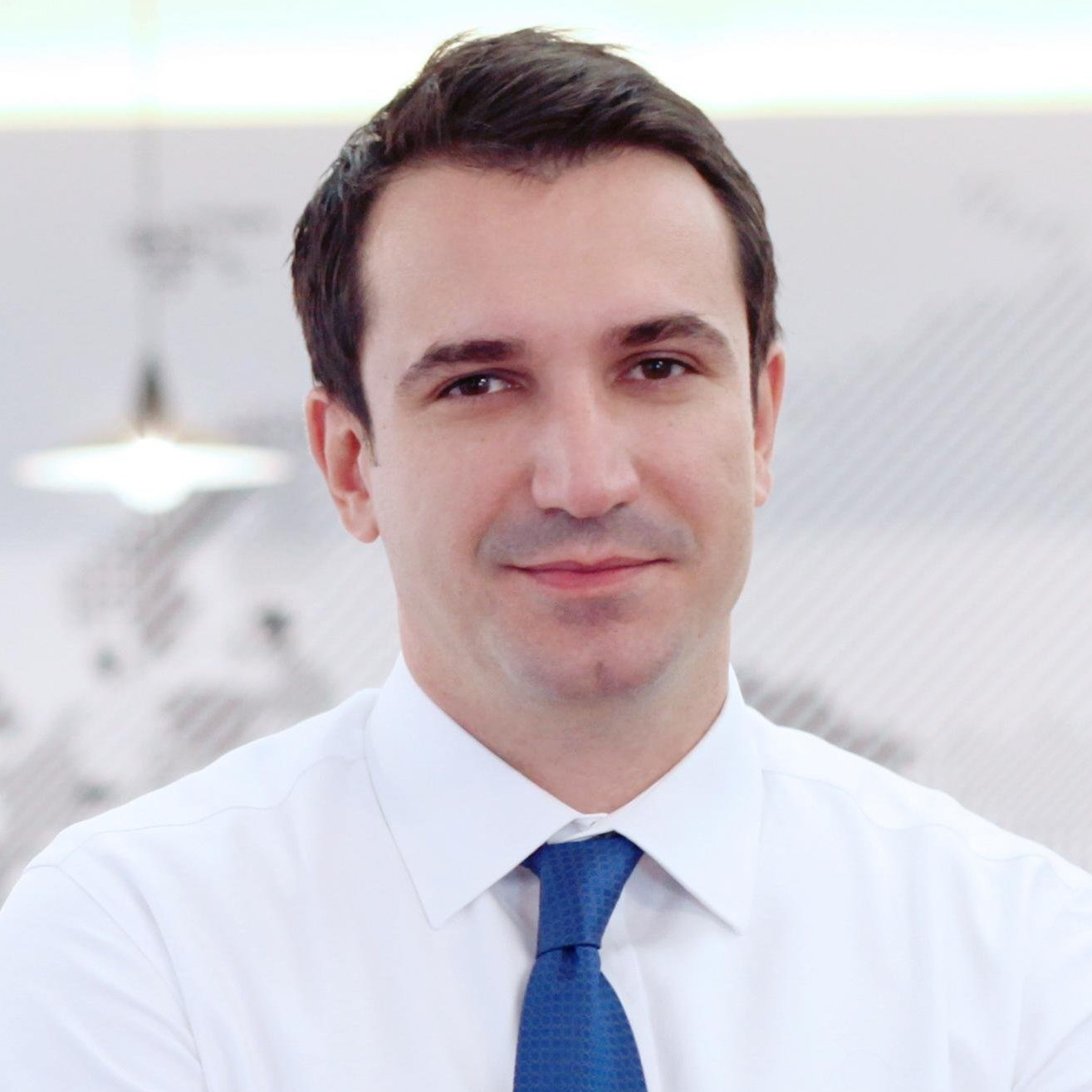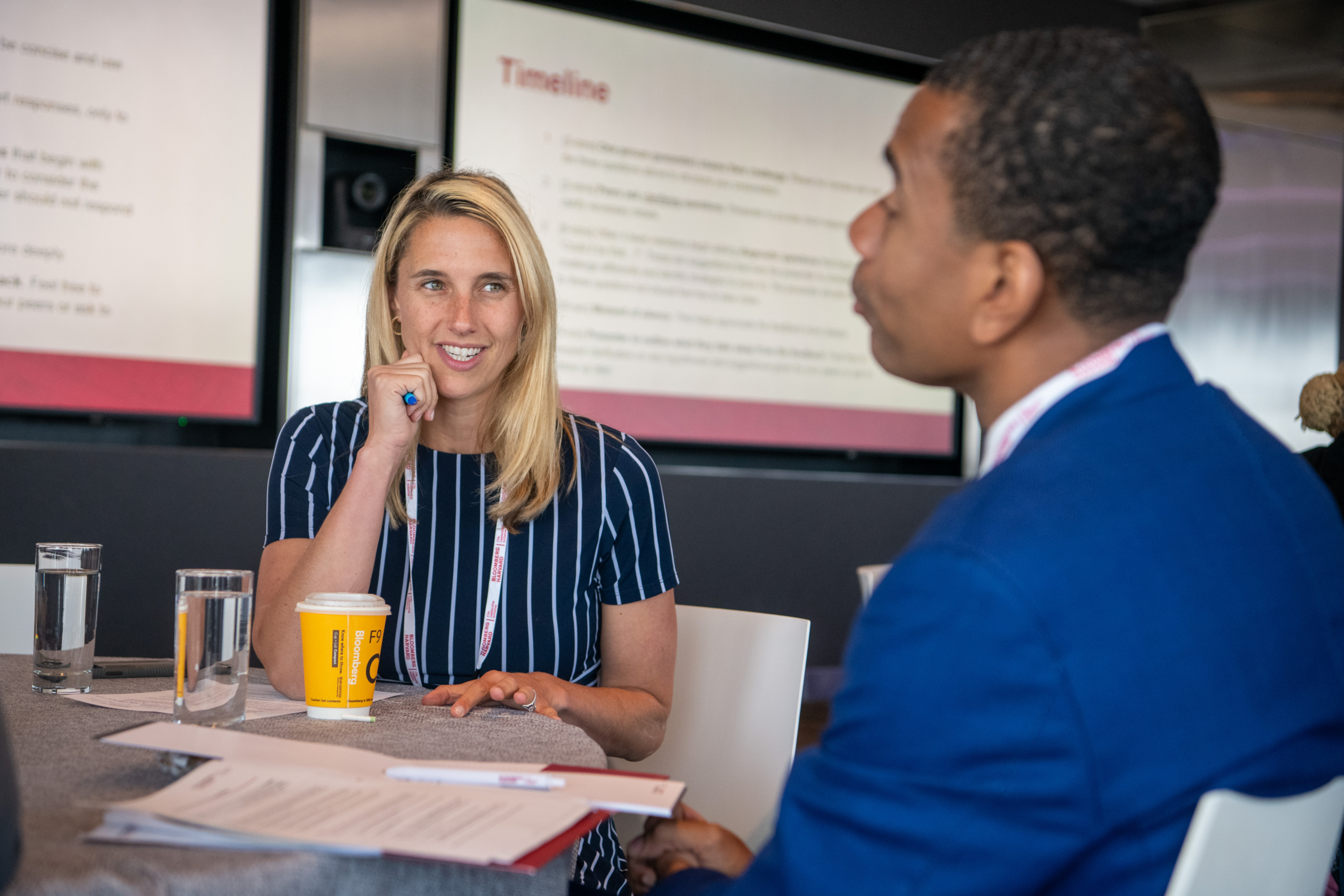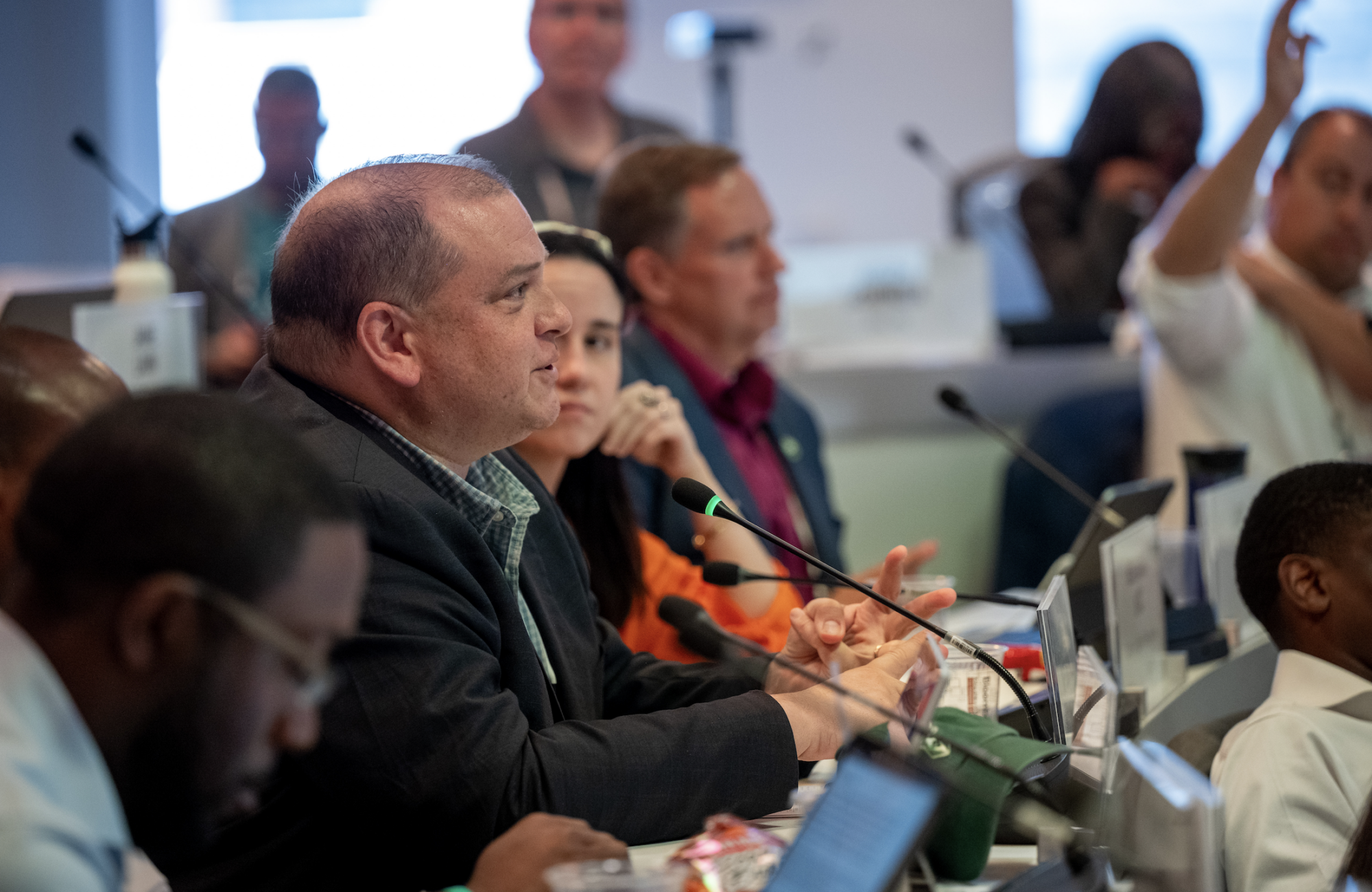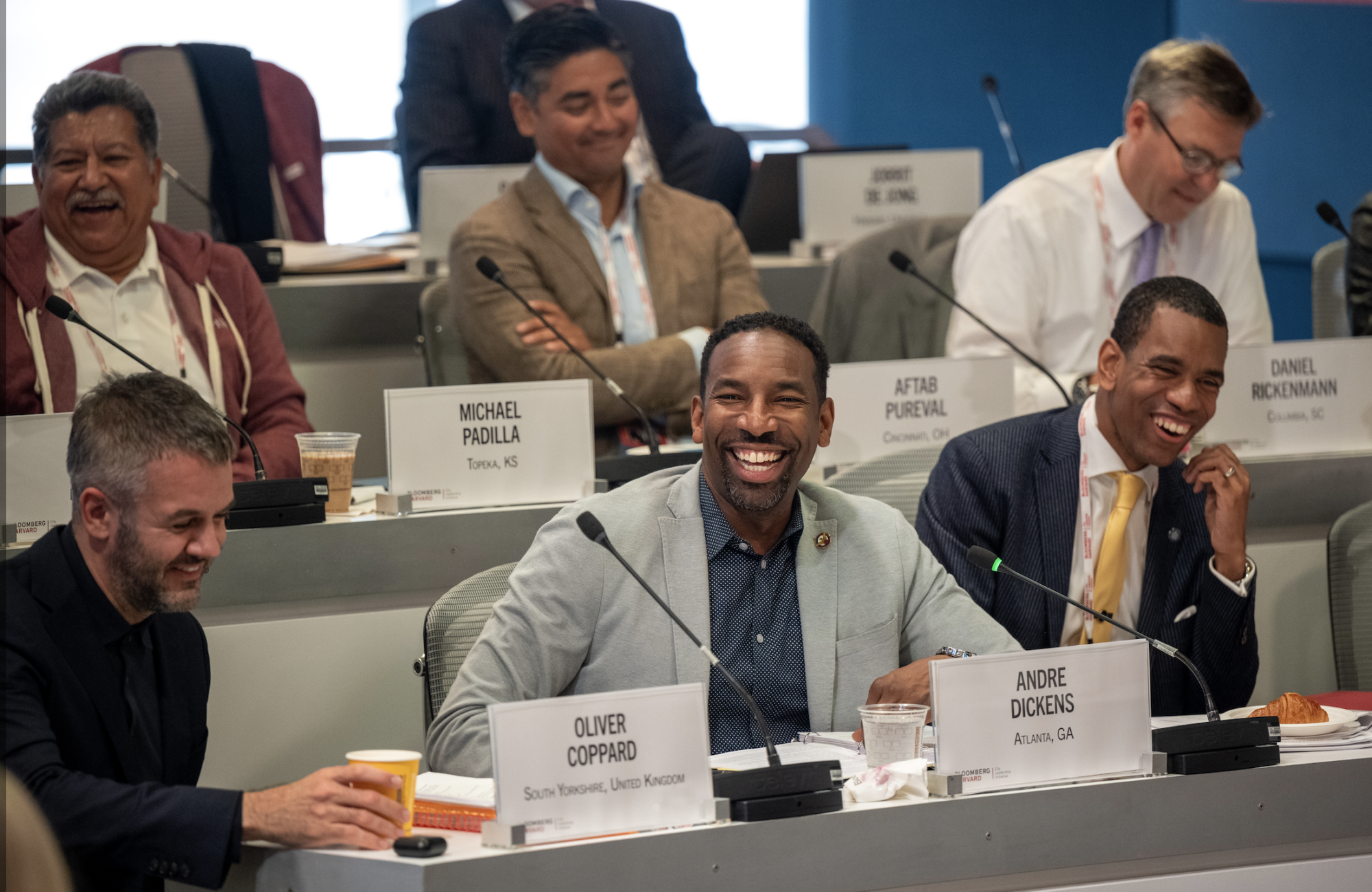Strategic Leadership and Management
Crafting Public Narrative to Enable Collective Action: A Pedagogy for Leadership Development
Academy of Management Learning & Education
A yearlong, high-impact experience equipping global mayors and senior city officials with management and leadership training for solving real-world problems
Each year, the Bloomberg Harvard City Leadership Initiative offers leadership and management training to 40 mayors from around the world, and to two senior officials from each mayor’s city who are most crucial to affecting organizational change.
Over the course of a year, the program combines an intensive classroom experience with broader training and capacity-building to help participants foster their professional growth, advance key capabilities within their city hall, and lead more effective, efficient, and equitable cities.
Harvard professors Jorrit de Jong and Rawi Abdelal serve as the program’s Faculty Co-Chairs.
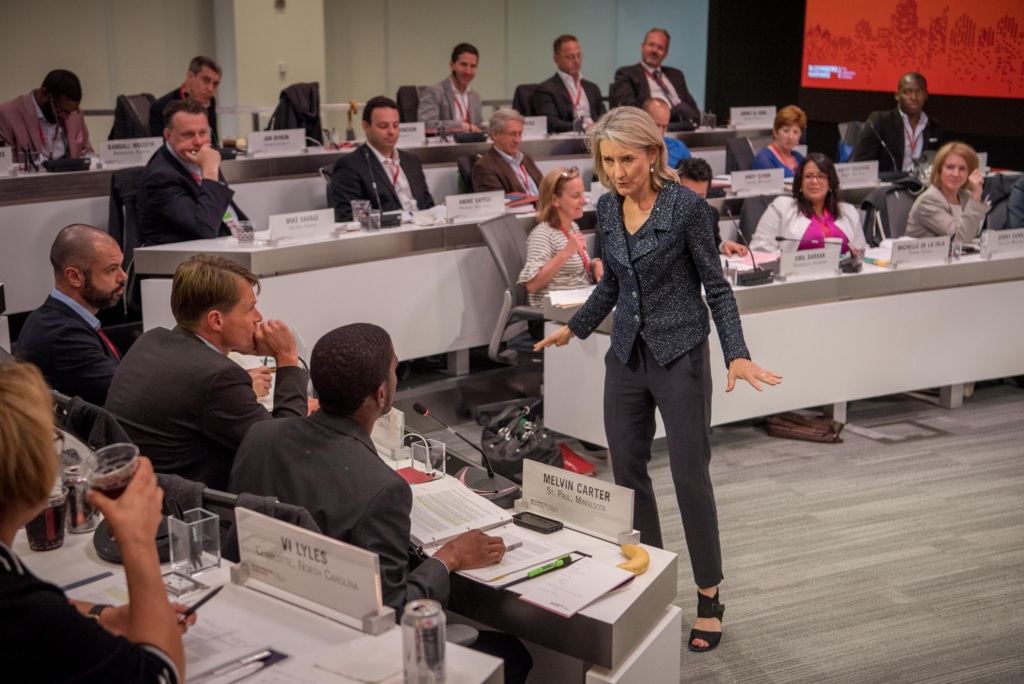
Global impact
City leadership involves challenges and responsibilities not found in any other layer of government. The investment and support in city government skills and knowledge that the Bloomberg Harvard City Leadership Initiative provides is unique and our participation is something that Glasgow’s citizens will continue to benefit from for years to come.Mayor Susan Aitken
Glasgow, Scotland
We were able to expedite our progress, develop a comprehensive plan, and achieve results within just six months through this invaluable opportunity. Collaboration with like-minded individuals helped me make significant progress on my personal growth as a leader.Mayor Justin Bibb
Cleveland, Ohio
Despite our different continents, contexts and conditions, as mayors participating in this program, we shared similar, if not identical, problems, conflicts, and opportunities. I used lessons involving data, building consensus, collaborating with other sectors, and communicating through story to address some of Tirana’s greatest opportunities.Mayor Erion Veliaj
Tirana, Albania
In-person and virtual sessions, taught by Harvard Business School and Harvard Kennedy School faculty, help mayors and their senior leaders step back from day-to-day responsibilities and focus on their personal leadership and organizational practices within their city.
Key topics include strategic leadership and management, collaboration, innovation and experimentation, and using data and evidence to improve decision-making.
Build and support high-performing teams
Increase leadership and management capacity in their city
Communicate with constituents and key partners
Use data to increase transparency, make better decisions, and manage performance
Effectively innovate by prototyping, implementing quickly, and learning from failure
Work across silos and break down barriers to collaboration within city hall and across the city
In addition to core classes, each city has the opportunity to access deeper programming, support, and resources that help them improve a key practice over the course of the year. Senior leaders, working alongside their mayors, play a leading role in this work and are able to draw in additional colleagues to broaden impact, building organizational muscle in one of three key problem-solving practices: collaboration across agencies, jurisdictions, and sectors; use of data and evidence; or innovation.
Mayors are charged with solving many of the most pressing problems that our cities face. Often, these challenges have been festering for decades as rather narrow interventions have failed to make a difference—for good reason. These problems are hard to solve, and they require disparate groups with competing interests and unrelated priorities to work together.
In this track, cities strengthen their ability to harness the talents, resources, and energy of diverse stakeholders working across sectors, jurisdictions, and agencies to solve complex problems.
Mayors need to know which data they need and how best to use it to improve outcomes for their residents. Developing data-informed systems and practices can enable cities to more effectively and equitably allocate resources, analyze problems, inform decisions, and manage performance to achieve better results—and ultimately improve city residents’ lives.
Mayors are often asked to design and deliver the points of interaction for residents seeking critical services from local government—whether accessing food stamps, applying for a business license, or navigating city recycling processes. Senior city leaders often need to balance providing immediate services with reimagining and redefining their teams’ work.
Through the innovation track, city teams receive instruction and hands-on coaching to help them develop innovative solutions to improve a specific service interaction between their city and the community. By creating quick wins, cities can demonstrate how innovative ways of working can improve government services.
Strategic Leadership and Management
Academy of Management Learning & Education
